- THE UNIVERSITY OF CHICAGO
- Prospective Students
- Search Search
- Committees and Areas of Study
- Anthropology and Sociology of Religion
- Buddhist Studies at UChicago
- History of Christianity
- History of Judaism
- History of Religions
- Islamic Studies
- Philosophy of Religions
- Religion, Literature, and Visual Culture
- Religions in the Americas
- Religious Ethics

The ASR area examines religious phenomena as social facts and cultural processes, using a combination of tools including fieldwork, archival research and textual interpretation.
Faculty: Alireza Doostdar , Angie Heo , Elham Mireshghi , Matthew M. Harris
Associated Faculty: Hussein Ali Agrama, Julie Chu, William T.S. Mazzarella, Omar M. McRoberts, Stephan Palmié
Anthropology and sociology have long served as core disciplines of the social sciences, and social scientific work on religion has been foundational for our current theorizations of culture, society, personhood, language, knowledge and economy. Promoting critical inquiry of what is regarded as 'religion', anthropologists and sociologists are attendant to the categories and politics of analysis, beginning from the everyday contexts of discourse and practice that make collective institutions and competing horizons of authority possible.
Our ASR program is committed to qualitative ethnographic fieldwork, serious linguistic training, and historically sensitive research. Our Ph.D. students have worked on a range of topics from transnational movements in India, South Korea and the U.S. to spiritual tourism/ pilgrimage in Peru, Brazil and Iran. Our core faculty are experts in contemporary Islam and Christianity, with geographic specialties in the Middle East and East Asia. We maintain a particular focus on the following topics in the comparative study of religion worldwide:
- epistemology and philosophy of knowledge
- media and materiality
- political economy, authority, governance
- colonialism, nationalism, globalization
ASR students at the Divinity School gain unique training, combining a rigorous theoretical approach with fieldwork tools as well as engaging complementary methods in the historical, philosophical, and literary study of religion. Our students are encouraged to take courses in other areas of study within the Divinity School such as History of Religions, History of Christianity, Islamic Studies and Religions in America, as well as in other university departments outside the Divinity School such as the Departments of Anthropology and Sociology. ASR is also active in fostering collaborative work with students in other areas and disciplines through our student-run Religion and Human Sciences Workshop (see below).
Sample Courses
- Problems in the Anthropology of Religion I
- Problems in the Anthropology of Religion II
- Religion and Economy
- Classical Theories of Religion
- Islam and Biomedicine
- Transnational Religious Movements
- Is Modernity Disenchanted?
- Magic, Science and Religion
- Anthropology of Christianity
- Feminism and Islamic Studies
- Islamic Jurisprudence, Reason, and the State
- Ethnographic Methods
- Spirits of Capitalism
- Religion and the Cold War
For PhD Students
The following documents provide guidelines for current and prospective PhD students in ASR. Please consult these texts before contacting the faculty with questions.
- ASR PhD Guidelines
- ASR Fieldwork Guidelines
- ASR Dissertation Proposal Guidelines
- Divinity PhD Milestones Chart
- ASR1 Anthropology of Religion
- ASR2 Special Topic (of student's choice in consultation with examiner)
- ASR3 Another special area or thematic exam (of student's choice in consultation with examiner)
Popular Searches
- PhD Program
- Master's Degrees
- Online & Professional Studies
- Events and Hospitality

- Program and Course Finder
- Master’s Degrees
- Our Curriculum
- Wright Library
- Departments
- Centers & Initiatives
- Research Grants and Projects
- Office of the Registrar
- Academic Calendar
- Academic Support & Resources
- Accreditation

- How to Apply
- Scholarships & Financial Aid
- Visit & Connect with Princeton Seminary
- Admitted Students
- Visiting Scholars

- Worship and Music
- Health & Wellness
- Global Services
- Communities & Groups
- Accessibility & Disability Accommodations
- Community Practices & Policies

- Continuing Education
- Online Offerings

- Mission & Vision
- News & Events
- Office of the President
- Board of Trustees
- Visitor Information
- Giving to Princeton Seminary
- Slavery Report
- Nondiscrimination and Anti-Harassment

Religion & Society PhD Program
The Religion and Society Program promotes interdisciplinary reflection that critically examines religious and social life. With “the religious” and “the social” as its two areas of focus, the program equips doctoral students with theoretical resources and diverse perspectives that enhance and deepen their theological studies and Christian practices in church and society. These areas of study are important for structuring the program’s conceptual field and its comprehensive exams.
PhD Course of Study
The faculty of the program bring a variety of perspectives and expertise in:
- Religious studies (e.g., sociology of religion, history of religion, philosophy of religion)
- Social sciences (e.g., sociology, anthropology, political science, economics)
- Humanities (e.g., history, literature)
- Ethics (e.g., religious, social, theological)
- Theology (e.g., systematic, doctrinal, constructive)
Seminary and University Scholarship
Doctoral students are expected to learn from disciplines of the university, even as they focus those disciplines for distinctive concerns and contexts of Christian theological traditions. This program not only enables scholarship at the Seminary to sustain its own community of research into religious and social issues, it also serves as a liaison between the Seminary and Princeton University and, on occasion between the Seminary and other nearby institutions.
U.S. and International Scholarship
The dual focus on religion and society, and its distinctive interdisciplinary work, has traditionally made the Religion and Society Program an important resource for international as well as U.S. scholars. The PhD program places a high value on a functioning diversity of scholars from this country and from abroad, who come together to reflect critically on issues of justice and peace, and on human differences that are not only religious, social, and theological, but also cultural, political, and economic.
The Religion and Society Program has traditionally sought to fuse rigorous reflection with social criticism and prophetic discourse.
Seminars Offered by Religion and Society Program Faculty
- Critical Issues in the History of Religions
- The American Jeremiad: American Religion in Cultural Context
- Methods in Theological and Religious Studies
- Aquinas on Law and the Virtues
- Theological Anthropology
- Race, Racism, and Religion in America
Comprehensive Examinations
The interdisciplinary ethos of the Religion and Society Program is structured for doctoral students around four comprehensive exams, usually toward the end of the second year of residence. One of these exams should be selected by examinees as their “theory and methods exam,” in which they include special attention to theoretical and methodological options and debates pertinent to that exam.
- Religion and religions—This exam should demonstrate excellence in knowledge of religious studies and at least one non-Christian tradition.
- Social sciences or the humanities—This exam should demonstrate excellence in one theoretical perspective on the “social” in either the social science or the humanities.
- Ethics—This exam should demonstrate excellence in the knowledge of religious, social, or theological ethics.
- A Dissertation-related theme or problematic—This exam should demonstrate excellence in analyzing a theme or problem that will be significant in the writing of the dissertation.
The first two exams enable disciplined attention to the areas of study, which set the conceptual field of religion and society. The third exam in ethics is required because analysis of the moral life, and ethical reflection upon it, has been a key site wherein religious and social themes often intersect in theological studies and Christian practice. The fourth exam enables students to focus research and thinking about their dissertations. These exams are “qualifying” exams in that they certify readiness to proceed to the dissertation proposal and writing phases of the program.
- Apply Now ☑
- 1-800-933-6188 ☎

Earn an Advanced Degree to Lead Social Change Through Research
- Academic Catalog
- Course and Instructor Evaluations
- Institutional Services Assessment
- Virtual Financial Aid Office
- Voter Registration
- NC-SARA Student Complaints
- Privacy Policy
- Library Services and Resources
- Library Databases
- Online Library Catalog
- Library Tutorials
How to Earn a Doctorate of Religion
Pursuing a Doctorate of Religion and Society Studies at Omega Graduate School is a journey of academic rigor and personal growth. This program is designed for those who seek to deeply understand the interplay between religion and society. Here’s how you can earn this prestigious degree.
What is a Doctorate of Religion?
A Doctorate of Religion is a prestigious and advanced academic degree that studies religious beliefs, practices, and their impact on society. It involves rigorous research, critical analysis, and the production of original scholarship in religious studies. Students pursuing a doctorate in religion typically explore religious traditions, theological concepts, and religion’s historical and sociological aspects.
Its interdisciplinary approach sets the Doctor of Philosophy (DPhil) in Religion and Society Studies at Omega Graduate School apart. While traditional religious studies programs often concentrate solely on theology and religious texts, OGS’s DPhil program takes a broader perspective by integrating sociology, ethics, and leadership studies. This multidisciplinary approach enables students to understand religious beliefs and critically examine their societal implications and ethical dimensions. Graduates of the OGS program are uniquely equipped to address complex challenges at the intersection of religion and society, making this degree a valuable asset for those seeking to influence positive change in diverse social contexts.
Understanding the Program’s Focus
The DPhil in Religion and Society Studies is an interdisciplinary program. It combines elements of sociology, theology, ethics, and leadership studies. The program aims to prepare scholars to critically analyze and influence the relationship between religion and society.
Admission Requirements
Prospective students must hold a master’s degree, preferably related to the field. The admissions process includes submitting academic transcripts, recommendation letters, a statement of purpose, and possibly undergoing an interview. Check the Omega Graduate School’s Admissions for detailed requirements.
Curriculum and Coursework
The curriculum is designed to provide a broad understanding of the interplay between religion and society. Core courses cover social theory, religious traditions, and ethical leadership. Students also engage in extensive research methodologies to prepare for their dissertations.
Research Focus and Dissertation
A significant portion of the DPhil program involves conducting original research. This research culminates in a dissertation that contributes new knowledge to the field. Students work closely with faculty advisors to develop research proposals and conduct their studies.
Time Commitment and Duration
The program typically takes three to five years to complete, depending on whether students are enrolled full-time or part-time. This timeframe includes coursework, research, and writing the dissertation.
Faculty and Mentorship
Omega Graduate School boasts a faculty with expertise in various aspects of religion and society. These mentors guide students through their academic journey, from coursework to dissertation defense.
Career Enhancement
Graduates can enhance their academic careers, research, leadership roles in religious organizations, and consultancy in social policy. The degree opens doors to influence society’s understanding and application of religious principles.
The Value of a PhD/DPhil from Omega Graduate School
Earning a PhD/DPhil in Religion and Society Studies from Omega Graduate School is about gaining a degree and becoming a thought leader in a vital field. The program offers an opportunity to explore complex societal issues through the lens of religious understanding.
The journey to earning a DPhil in Religion and Society Studies at Omega Graduate School is challenging but immensely rewarding. It prepares scholars to contribute meaningfully to the dialogue between religion and society. For more detailed information about the program, visit Omega Graduate School – DPhil in Religion and Society Studies .
Graduate Department of Religion
Alert Content Goes Here
Religion, Psychology, and Culture
Area faculty.
JACO HAMMAN Professor of Religion, Psychology, and Culture Director of the Program in Theology and Practice
PHILLIS ISABELLA SHEPPARD Associate Professor of Religion, Psychology, and Culture Graduate School, Divinity School
YARA GONZÁLEZ-JUSTINIANO Assistant Professor of Religion, Psychology, and Culture Graduate School, Divinity School
AFFILIATED FACULTY
SANDRA BARNES Professor of Sociology of Religion, Professor of Human and Organizational Development Graduate School, Peabody College
ERIK CARTER Associate Professor Department of Special Education, Vanderbilt University
PAUL R. DOKECKI Professor of Psychology Graduate School, Peabody College
KEITH MEADOR Professor of Preventative Medicine, Professor of Psychiatry, Center for Biomedical Ethics and Society
GRAHAM RESIDE Executive Director and Assistant Professor of Sociology of Religion, Cal Turner Program in Moral Leadership for the Professions; Graduate School, Divinity School
Guidelines for Ph.D. Studies
Revised spring, 2015 , i. purpose.
The objective of the program in Religion, Psychology, and Culture (RPC) is to provide advanced study for students in religion and the psychological sciences in preparation for careers in teaching and scholarship. The program includes the study of theories and dynamics of personality, the praxis and theory of pastoral theology and care, and critical and constructive reflection on the methods and substance of both theology and psychology. Students are expected to develop competence in understandings of the human person in the social sciences and religion. In order to pursue work in RPC, students must have general knowledge in religion, history of religious thought, scriptural study, systematic and contemporary theology, ethics, and philosophy, either through prior course work (B.A., M.A., M.Div., or M.T.S.) or courses taken after enrollment in the Ph.D. If students enter with 24 hours or less of such work, they should expect Ph.D. course work to be somewhat lengthened.
II. PROGRAM OF STUDY
Successful completion of the program requires work in four areas. Students must 1) satisfy course work; 2) satisfy language examinations; 3) pass qualifying examinations; and 4) complete and defend a dissertation.
Students are assigned an advisor who meets with them during registration, oversees transfer credit and annual review of progress, and arranges pre-exam and oral exam meetings. As students prepare for exams and organize their Ph.D. committee, they are free to choose a new advisor as first reader and dissertation director based on research interests.
1. COURSE WORK
Courses require students to gain knowledge and competence in three areas: empirical or hermeneutical social scientific study of religious experience; practical and pastoral theology, care, and counseling; and interdisciplinary studies in religion, personality, and culture. As part of the 72 hours of course work completed over approximately five semesters, students must take 24 hours in RPC. Students must also have a minimum of 12 hours total in two minor areas, one internal to the Graduate Department of Religion (GDR) and the other outside the GDR in a social science, such as psychology, anthropology, or sociology (6 hours minimum in each area).
Exposure to clinical pastoral psychotherapeutic practice is another distinctive component of the program. A clinical seminar for 6 hours credit is required during the first four semesters of residency. It involves clinical practice, reading, and presentation of clinical work in rotation with peers and is directed by clinical faculty. Students make their own arrangement for clinical work based on individual interests. Further training can be pursued through a variety of area institutions, such as the Peabody College of Human Education and Development (M. Ed. in Counseling), Pastoral Counseling Centers of Tennessee (American Association of Pastoral Counseling certification), Advanced Psychodynamic Psychotherapy Program (co-sponsored by the Nashville Psychoanalytic Group and the St. Louis Psychoanalytic Institute). Work in chaplaincy and medical ethics can be pursued through area health care institutions and Clinical Pastoral Education programs and through Vanderbilt’s Center for Biomedical Ethics and Society.
During the first two years, students take 9-12 hours each semester, often comprised of two RPC courses, one course in a minor area, and the Clinical Seminar. GDR students are required to take The Study of Religion and the Practicum in the Teaching of Religion before serving as a Teaching Assistant in their second year. The remaining hours for completion of the degree (approximately 30 hours) are met through additional course work as needed, transfer credit, or dissertation hours.
In the spring semester of the first and second year, students meet with RPC faculty to review their progress and future plans. Prior to meeting, students prepare and circulate among faculty a list of courses taken, research papers, clinical work, and other information relevant to progress. By the second semester of study, students must have met one language requirement, begun course work in at least one minor area, and explored dissertation topics. By the fourth semester, students must have met the second language requirement; they should also have identified minor area faculty and an initial dissertation topic and question.
2. LANGUAGE REQUIREMENTS
The GDR requires research competence in two languages, the first demonstrated upon matriculation and the second demonstrated by first day of 3rd semester . At least one of these must be a modern language (normally French, German, or Spanish). RPC students often meet the second language requirement through a social science research method, such as statistics or qualitative research (e.g., a graduate course passed with a B or better). This can also be met through a second modern language, a biblical or ancient European language, a non-European language, or the student's native language (if not English).
3. QUALIFYING EXAMINATIONS
Exams are completed in five areas:
- Pastoral Theology
- Religion and Psychology
- Methods in Religion, Psychology, and Culture
- Internal GDR minor
- External Social Science minor
Requirements for the three RPC exams (pastoral theology; religion and psychology; and methods in religion, psychology, and culture) are met through three written exams usually taken in the third year of study and no later than four years from admission. They are administered over a period of two weeks three times a year (October; March; and August). The GDR publishes the specific dates each year.
Minor Area Exams
Requirements for the two minor area exams are met through work negotiated by the student and approved by a faculty in the minor area (often a major research paper or written exam that builds on course work in the minor area and that may contribute to dissertation research). Grades and evaluation for minor exams are due in the GDR office and to the area director prior to the written exams.
RPC Exam Procedures
- Requirements: Prior to exams, students must have completed 4 semesters of study and at least 36 hours of course work and satisfied language requirements and minor area exams.
- Petition for exams and pre-exam meeting: At least one semester prior to RPC exams, students petition to take exams, meeting with RPC faculty to review preparation and discuss exam bibliography and submitting a request to take exams to the GDR office. Prior to the meeting, students circulate to RPC faculty (1) an account of preparation (e.g., courses, research papers, clinical work, dissertation research interests) and (2) abstracts of the two minor area exams.
- Additional books and questions: No later than two weeks prior to exams, students circulate to RPC faculty (1) a list of 10 additional books from the secondary list of the required exam bibliography and (2) 2-4 questions for each exam.
- Written exams: Students arrange with the GDR office specific days within the exam period to take each exam and receive questions and return answers to the office at the designated time. Normally students are given a choice of answering three of four questions and have a total of eight hours for preparation and writing for each exam. Exam questions draw on the required bibliography and additional books identified by the student. They focus on specific interests of the student and general understanding in each exam area. Students are expected to know the key contributions of the required texts and should be able to demonstrate a general breadth of knowledge as well as depth in specific areas and scholarship. In each exam area, students should know in greater depth the corpus of one primary scholar or school of thought. RPC courses are designed to assist students in preparing for exams.
- Oral exam and draft of dissertation proposal: A two-hour oral exam on the written exams (first hour) and dissertation research (second hour) occurs within two weeks after the written exams. One week prior to the conversation, students should submit to faculty a rough draft of a dissertation proposal that describes a student’s history of exploring a particular concern and begins to identify the primary research question, thesis, method, outline, and bibliography.
- The Ph.D. Committee : A Ph.D. committee comprised of RPC area faculty and your minor area faculty will be formed by the Graduate Department of the university when you submit a request to take exams to the GDR office. Please note that the Ph.D. committee that oversees exams need not be the same as the committee that oversees the dissertation. Final decisions about the make-up of the dissertation committee do not have to be made until you are in the process of submitting your dissertation proposal after exams. Prior to exams, you simply need to have a general idea about who you anticipate will serve on your dissertation committee, especially as first and second readers.
4. DISSERTATION
After passing exams, students develop a final proposal for the dissertation according to GDR standards and in consultation with the first reader. It is reviewed in a meeting of the Ph.D. Committee, and then submitted to the GDR for approval. Once the GDR approves the proposal, a student becomes a candidate for the degree.
Important questions to consider in defining the proposal are:
- What is the problem addressed by the dissertation?
- What is the primary question and thesis?
- What is the methodological approach to the problem and project?
- Is the project sufficiently focused?
- Are there ample resources for pursuing the project in a reasonable time?
- Does the dissertation make a significant contribution to the field?
- Does the dissertation have prospects for future publication?
The dissertation must be completed within four years from exams. An oral defense before the committee and open to the public is conducted upon completion of the dissertation.
NOTE: These guidelines supplement The Bulletin of Vanderbilt University Graduate School and "The Guidelines of the Graduate Department of Religion." Students are expected to meet the common requirements of the program in these publications.
2024-2025 Academic Catalog
Sociology of religion concentration (sociology, ph.d.).
The Department of Sociology at Baylor University is recognized for its distinction in training sociologists of religion. The curriculum in the sociology of religion concentration brings together seminars of substantive interest, advanced methodological training and independent research. Students are prepared to enter the academic job market through a hands-on process of professional socialization.
Print Options
Send Page to Printer
Print this page.
Download Page (PDF)
The PDF will include all information unique to this page.
2024-2025 Undergraduate Catalog
A PDF of the entire 2024-2025 Undergraduate catalog.
2024-2025 Graduate Catalog
A PDF of the entire 2024-2025 Graduate catalog.
2024-2025 Diana R. Garland School of Social Work Catalog
A PDF of the entire 2024-2025 Diana R. Garland School of Social Work catalog.
2024-2025 George W. Truett Theological Seminary Catalog Catalog
A PDF of the entire 2024-2025 George W. Truett Theological Seminary catalog.
2023-2024 School of Law Catalog
A PDF of the entire 2023-2024 School of Law catalog.
Browser does not support script.
Go to…
- Undergraduate
- Master's
Research & Expertise
- Publications
- Research Centres
- Connections & Outreach
- International
- Widening Participation
Study at a university where Theology & Religion have been taught for over 180 years, in a department most recently ranked as the top for research environment in the UK (REF2021).
We offer supervision of doctoral projects focused on religion from a range of perspectives. Our research spans History, Philosophy, Religion and the Arts, Biblical Studies, Theology, Textual Studies, Jewish studies, Islamic Studies, Buddhist Studies, Systematic Theology, Anthropology of Religion, Sociology of Religion, and Religion and Political Science.
We would consider PhD proposals on a variety of religious traditions and new groups, and would particularly welcome projects that align with our areas of research interest and expertise. Depending on your field of study, you can be awarded a PhD in that area, for example, in Social Anthropology, Sociology, Political Science, or Religious Studies.
As a PhD student you will have access to seminars and events which profile the research of top scholars in the field as well as the religious and cultural diversity on your doorstep.
Our partnerships and collaborations with the National Gallery (Christianity & the Arts), the Courtauld Gallery, Leo Baeck College and the London School of Jewish Studies can provide additional learning resources for our students, as can our connections with a wide range of religious groups and institutions.
Explore the course details:
Theology & religious studies research.
MPhil/PhD Research from the Department of Theology & Religious Studies at King's College London.
View course

Postgraduate Research Hub
Explore careers, doctoral training schemes and funding opportunities.

World leading and internationally excellent theology and religious studies research.
King's Language Centre courses
As well as offering all King's students a discount on Evening & Saturday Language Courses, King's Language Centre supports the studies of our postgraduate students by offering credit-bearing modules and non credit-bearing modules (PG-only) free of charge.
Learning a language as a postgraduate student will encourage you to develop the ways in which you learn and retain information. The KLC's postgraduate-only courses focus on reading and speaking skills and revolve around the student's own research.
- Find out more

Study at King’s
View a prospectus.
Learn more about the degree programmes on offer at King's. Download or view a prospectus in PDF format.
- Undergraduate prospectus
- Postgraduate guide
Sign up for further information
Receive email updates about our courses, events, fees and funding, studying in London, how to apply and more.
Upcoming events

Virtual Campus Tour: Strand & Bush House
21 January 2025, 10:00
Take a virtual tour of our Strand & Bush House…

Virtual Campus Tour: Guy's
23 January 2025, 18:00
Take a virtual tour of our Guy's campus
Christian Smith, PhD
- Home ›
Course Syllabi
Sociology of religion (undergraduate class).
This course provides an introductory overview of the sociology of religion, an important field in sociology. Religion is one of the most powerful forces of social cohesion, order, meaning, disruption, and change in human societies, both historically and today in the modern world. Sociology provides a particular disciplinary perspective and analytical tools and theories for describing, understanding, and explaining the nature and influence of religion.
View the syllabus for Sociology of Religion, 177k PDF.
Critical Realism & Human Personhood (Graduate Seminar)
This advanced theory seminar explores the philosophy of social science known as critical realism and consider how it influences sociological research and scholarship. The first part of the course will read and discuss key works in critical realism as an alternative approach to positivist empiricism, postmodern deconstructionism, and hermeneutical interpretivism. The second part of the course then considers the implications of a critical realism for our understanding of human beings, of human persons. Attention is given to how critical realism shapes the conceiving and designing of research projects, data analysis, and explanation in scholarship. Along the way we will engage a variety of sociological theories and basic theoretical issues from a critical realist perspective.
View the syllabus for Critical Realism, 31k PDF
Understanding Societies (Undergraduate Class)
This course provides an introduction to the sociological perspective on human social life, exploring how the sociological imagination prompts the asking of certain questions and provides a particular approach to analysis and answering those questions. Central to our inquiry is the idea of the causal power of social structures. Thematically we focus on culture, socialization, social solidarity, social networks, social conflict, social institutions, social inequality, and social change, with a particular concern with community, emerging adulthood, social class, and religion.
Vview the syllabus for Understanding Societies, 219k PDF .
Sociology of Religion (Graduate Seminar)
This seminar explores important bodies of literature in the field of the sociology of religion. Its purpose is to help prepare graduate students to pass the doctoral exam in the sociology of religion, to research and write a successful sociology dissertation on religion, and to become a contributing scholar in the field. We will focus on important substantive findings of research programs in recent years, key theoretical debates in the field, and important methodological concerns.
View the syllabus for Sociology of Religion Graduate Seminar, 300k PDF.

Sociology of Religion Comprehensive Exam
In addition to whatever specific readings graduate students engage for their own personal research interests, there is a core set of readings with which sociologists of religion should be familiar with in order to claim professional competence and as a background to eventually teaching in the sociology of religion. The purpose of doctoral exams is to provide occasions for students to master the essential literatures of their fields of interests and research. Scholars inevitably differ somewhat on exactly what literature belongs on such core lists of readings. Listed here, however, are the readings which Notre Dame graduate students will be expected to master for their comprehensive exams in the sociology of religion.
View the reading list for the Sociology of Religion Exam, 293k PDF
Sociology of Religion
Faculty active in this area, corey colyer ** , katie corcoran ** , chris scheitle ** , rachel stein **, news and announcements.
- WVU Amish Research Team publish article in Journal of Religion and Health
- West Virginia University researchers study pandemic misinformation spreading in Amish, Mennonite communities
- New social survey brings West Virginia from the margins to the middle
- National Science Foundation. PI Rachel E. Stein, co-PI Katie E. Corcoran, and co-PI Corey J. Colyer. “The Effects of Group Closure and Organizational Network Ties in Closed Populations During a Pandemic.” $258,721, (2020-2023).
- International Research Network for the Study of Belief and Science. PI Rachel E. Stein, co-PI Katie E. Corcoran, and co-PI Corey J. Colyer. “Lived Experiences of Closed Religious Congregations During a Global Pandemic: The Amish and Mennonite Response to COVID-19 Medical Guidelines.” $23,518, (2020).
- West Virginia University Humanities Center. PI Rachel E. Stein, co-PI Katie E. Corcoran, and co-PI Corey J. Colyer. “Experiencing the Pandemic in a Closed Religious Group: The Amish and COVID-19.” $4,507, (2020).
- Sociology of Science and Religion: Identity and Belief Formation Grant. PI Christopher P. Scheitle and co-PI Katie E. Corcoran. “Religion, Science, and the Enchanted Worldview.” $167,797, (2020-2023).
- National Science Foundation. PI Christopher P. Scheitle. "Religion and the Professional Development of Graduate Students in the Sciences." $164,254, (2018-2021).
- Stein, Rachel E., Katie E. Corcoran, Carina Perrone*, and Jeralynn Cossman. Forthcoming. “The Influence of Reproductive History on Post-Reproductive Mortality: A Case Study of Amish Wom en.” Journal of Plain and Anabaptist Communities .
Scott, Ethan M., Rachel E. Stein, Miraides F. Brown, Jennifer Hershberger, Elizabeth Scott, and Olivia K. Wenger. 2021. “Vaccination Patterns of the Northeast Ohio Amish Revisited.” Vaccine 39(7): 1058-1063.
Stein, Rachel E., Katie E. Corcoran, Corey J. Colyer, Annette M. Mackay*, and Sara K. Guthrie*. 2021. “Closed but Not protected: Excess Deaths among the Amish and Mennonites During the COVID-19 pandemic.” Journal of Religion and Health. https://doi.org/10.1007/s10943-021-01307-5
- DiGregorio, Bernard D*.,Katie E. Corcoran, Corey J. Colyer, and Rachel E. Stein. 2021. ‘When the Waves Roll High’: Religious Coping among the Amish and Mennonites during the COVID-19 Pandemic Religions 12: 678. https://doi.org/10.3390/rel12090678
- Corcoran, Katie E ., Christopher P. Scheitle , and Ellory Dabbs*. 2021. “Multiple (Non)Religious Identities Leads to Undercounting Religious Nones and Asian Religious Identities.” Journal for the Scientific Study of Religion .
- Corcoran, Katie E. , Rachel E. Stein , Corey J. Colyer , and Brittany Kowalski*. 2020. “Familial Ties, Location of Occupation, and Congregational Exit in Geographically-Based Congregations: A Case Study of the Amish.” Review of Religious Research .
- Scheitle, Christopher P. , Erin Hudnall*, Brittany M. Kowalski*, and Ellory Dabbs*. 2020. “Religion, Family, and Career among Graduate Students in the Sciences.” Journal for the Scientific Study of Religion .
- Scheitle CP, Corcoran KE. Religious Tradition and Workplace Religious Discrimination: The Moderating Effects of Regional Context. Social Currents. 2018;5(3):283-300. doi:10.1177/2329496517734571
Sociology and Criminology

Doctor of Philosophy in Sociology
Get your phd in sociology.
At Iowa, the PhD program in Sociology is designed to provide you with rigorous training in theory and methods, with specialized programs in social psychology, gender, and social and political organizations. Our program offers intensive faculty guidance, interdisciplinary coursework, and a wide array of research and teaching opportunities to prepare you for careers in academic, private, and government institutions.
Program overview
Curriculum and summary of coursework.
Students who wish to pursue the PhD in Sociology may enter with a MA degree in Criminology or Sociology from another university or may first earn the MA degree in Sociology at the University of Iowa. A MA Thesis or MA Research Paper is required and must be approved before the PhD in Sociology. The requirements of the MA in Sociology with intention to continue to the PhD in Sociology are mapped below:
a By arrangement with instructor, non-graded or graded option.
Students may only advance to or be accepted into the PhD in Criminology upon completing the University of Iowa Sociology MA with Thesis or Research Paper, or by entering with an equivalent Sociology or Criminology MA/MS granted by a peer program at another university. To complete the PhD, students must take a total of 72sh; a minimum of 36 must be taken after the MA is conferred. PhD curriculum requirements are mapped below:
a By arrangement with instructor, non-graded or graded option.
b Applicable to the 72sh requirement but cannot be used to obtain the 36sh post-MA requirement.
Elective courses
18 s.h. from these:
Program milestones and experiences
Create your academic path.
You'll find degree overviews, requirements, course lists, academic plans, and more to help you plan your education and explore your possibilities.
Current course list
The MyUI Schedule displays registered courses for a particular session and is available to enrolled students. The list view includes course instructors, time and location, and features to drop courses or change sections.
Affiliated faculty
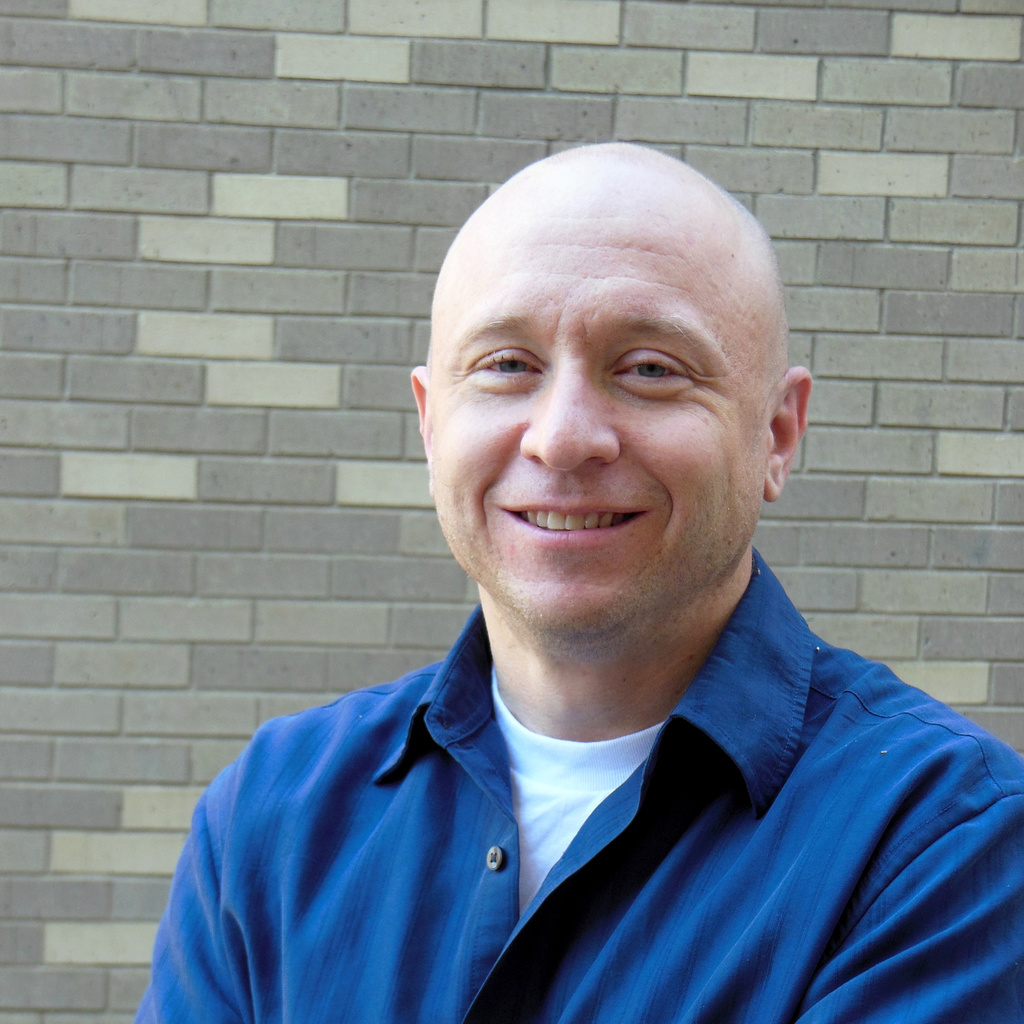
Michael Sauder, PhD
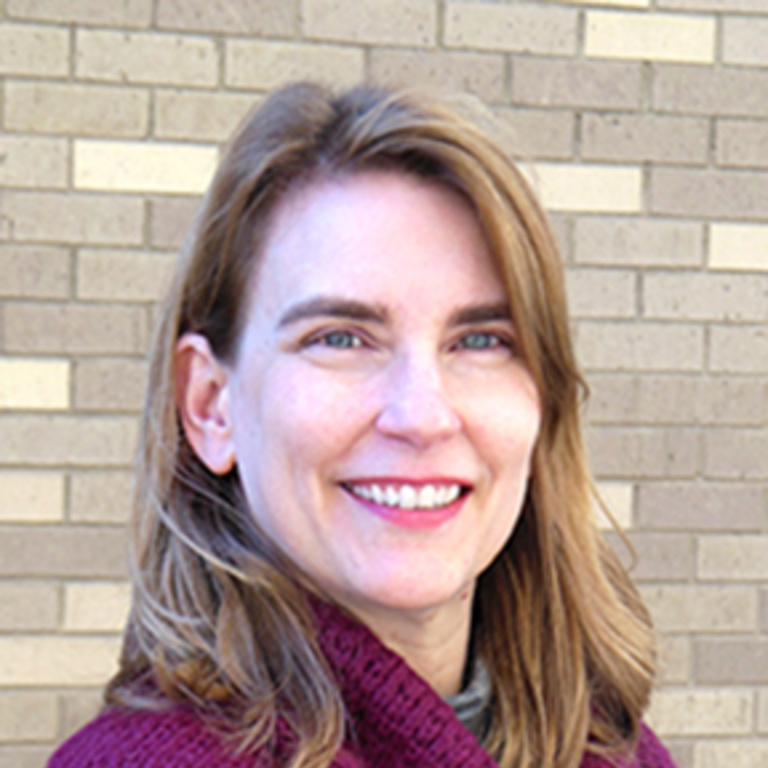
Jennifer Glanville, PhD
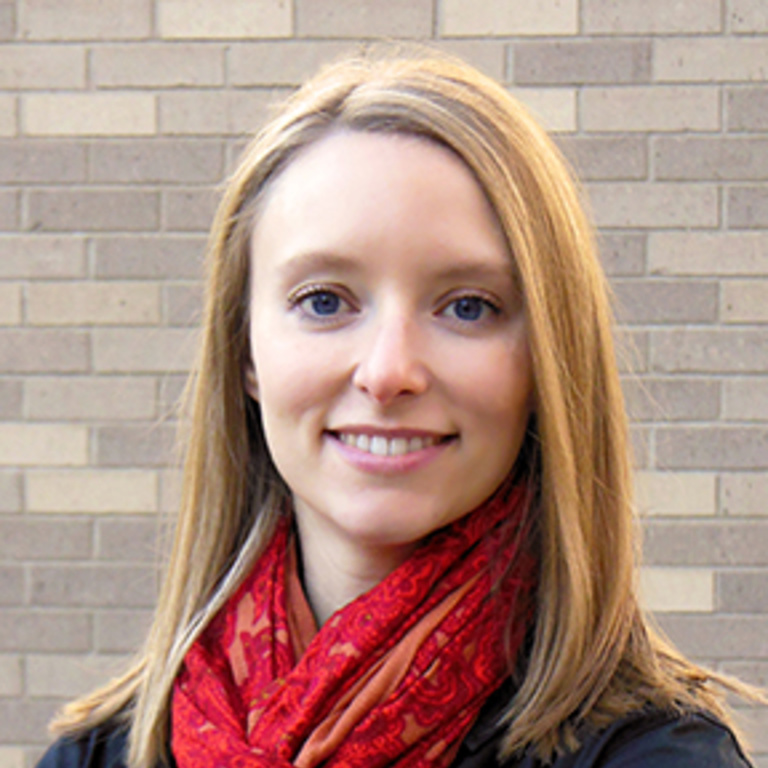
Sarah Harkness, PhD
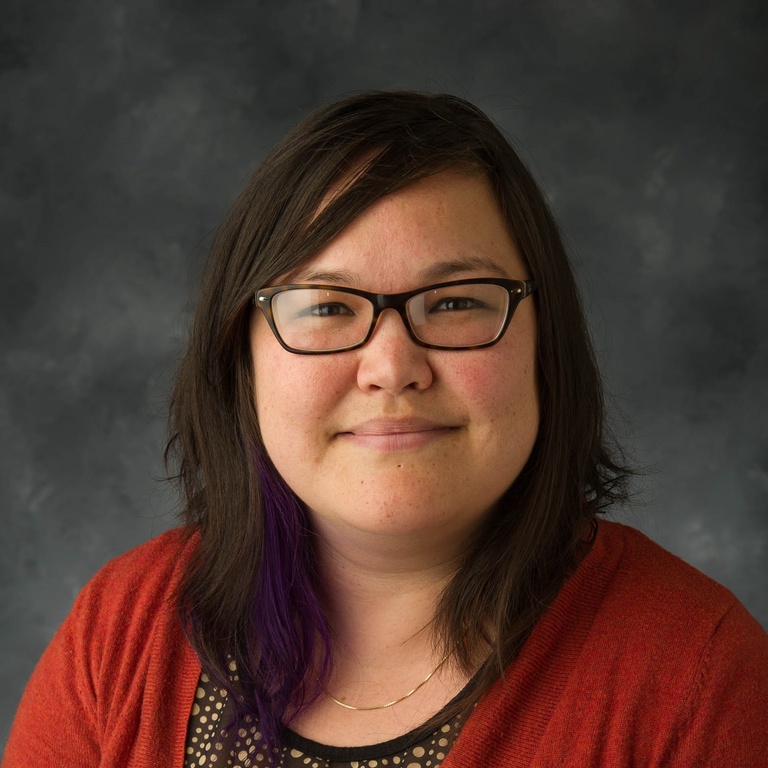
Jennifer Haylett, PhD
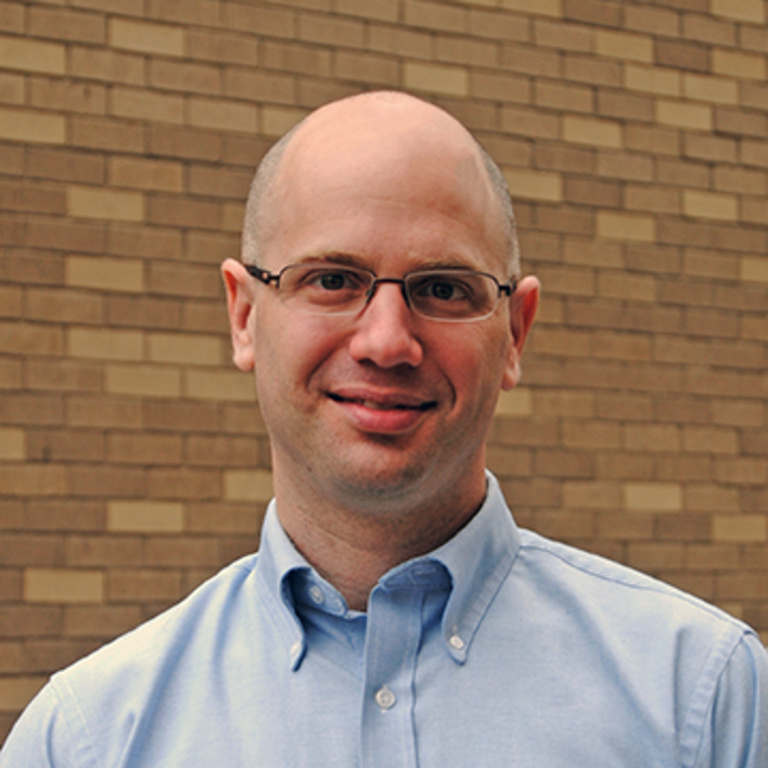
Steve Hitlin, PhD
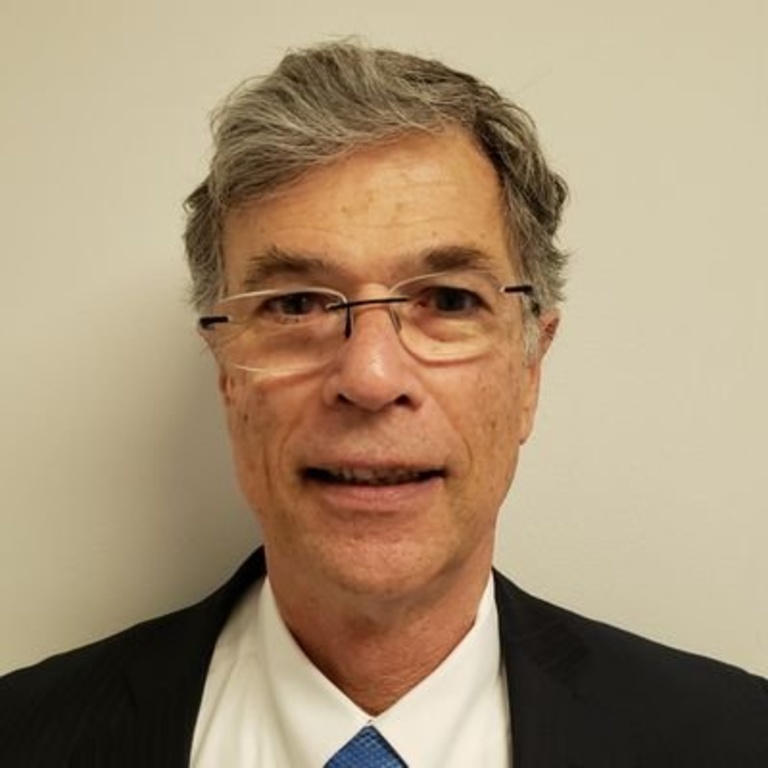
Michael Lovaglia, PhD

Freda B. Lynn, PhD
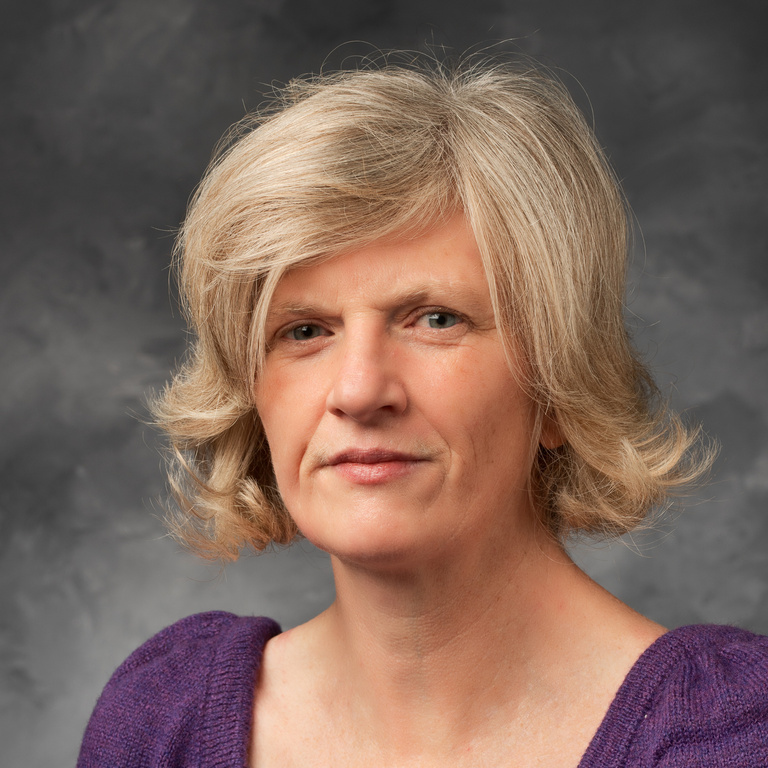
Mary Noonan, PhD
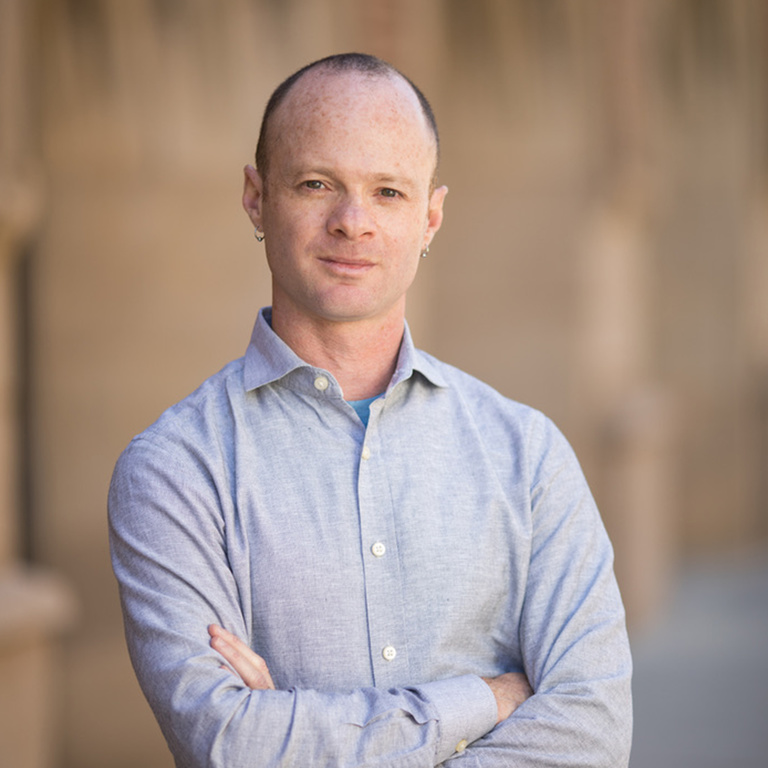
Victor Ray, PhD
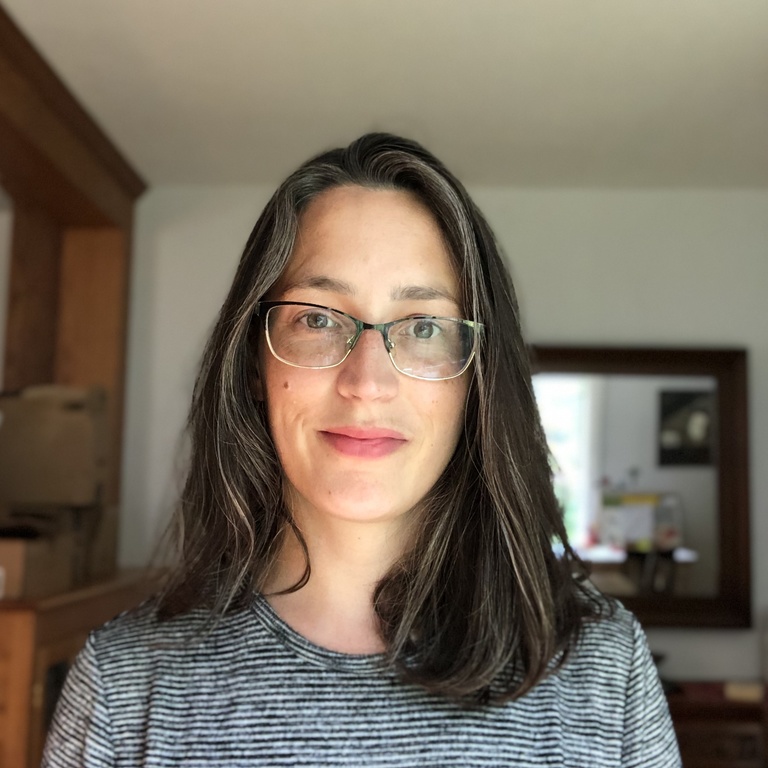
Louise Seamster, PhD
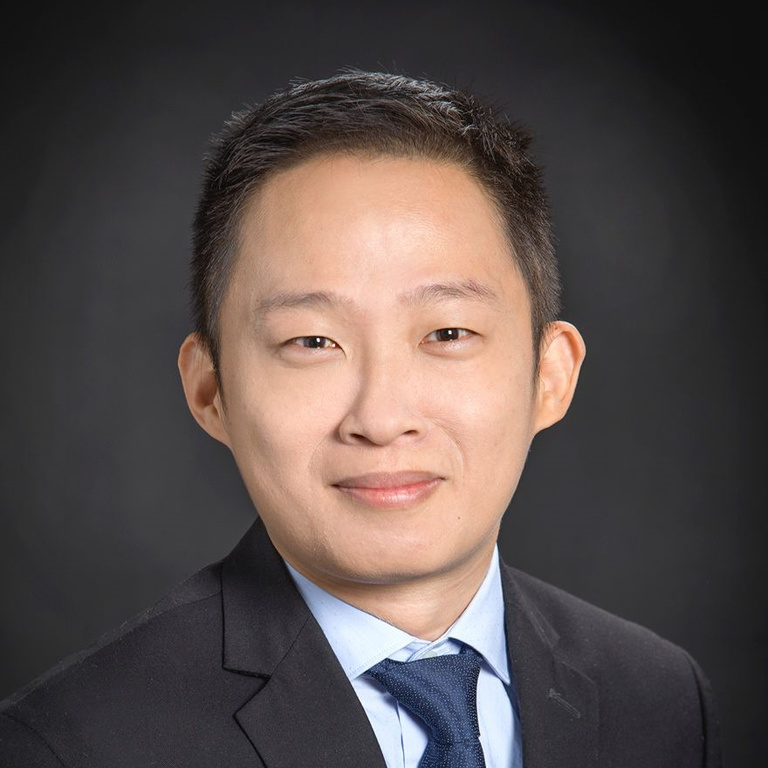
Yongren Shi, PhD
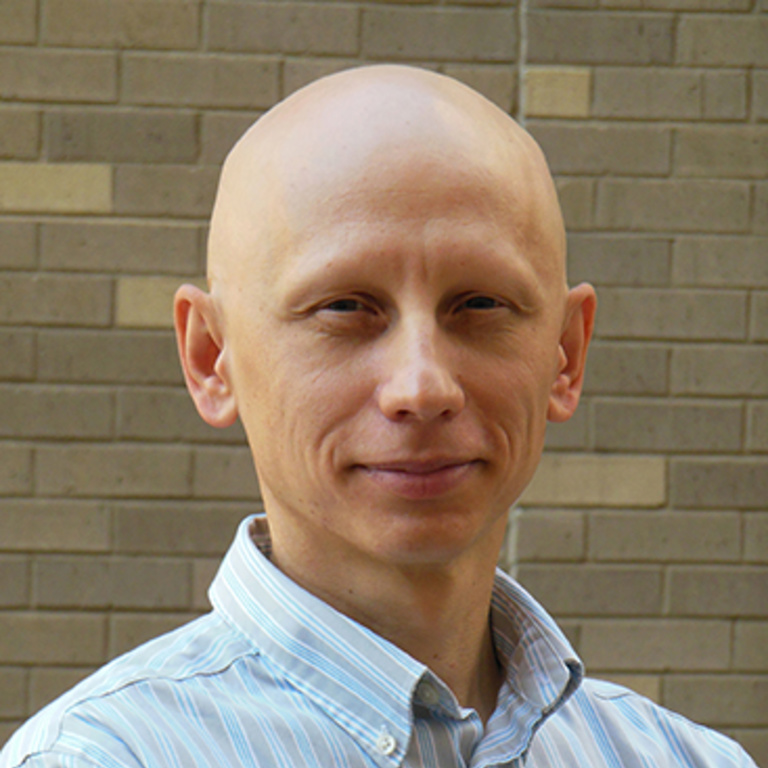
Ion (Bodi) Vasi, PhD
Secondary Menu
Sociology of religion, religion 775s, cross-listed as.
- SOCIOL 775S
Typically Offered
- Location & Directions
- Educational Objectives
- Books By Our Faculty
- Mentoring and Advising Plan
- Statement on the Standards of Conduct and Value in the Graduate Program in Religion
- Ph.D. Program Requirements
- Financial Support
- Graduate Placements
- Living in Durham
- Frequently Asked Questions
- Program Checklist
- Funding & Resources
- Graduate Assistants
- Teaching & Learning Group
- Language Examination
- Preliminary Exam FAQ
- Dissertation
- Graduation Checklist
- Professional Development
- Job Placement
- American Religion
- Asian Religions
- Christian Theological Studies
- Early Christianity
- Hebrew Bible/Old Testament
- Islamic Studies
- New Testament
- Religion, Aesthetics, and Society
- World Christianity
- Duke Religious Studies Course Schedule
- Duke Divinity Course Schedule
- Center for Jewish Studies Course Schedule
- UNC Religious Studies Course Schedule
- Research Professors
- Associate Professors
- Assistant Professors
- Affiliated Faculty
- Graduate Students
- Alumni Profiles
- For Current Students
- Assisting Duke Students

Katz Center Fellowships for 2025-26
The Herbert D. Katz Center for Advanced Judaic Studies at the University of Pennsylvania is offering residential fellowships for their 2025–26 year, with the theme: New Frontiers in Contemporary Jewish Life: Cultural Expansions, Encounters, and Experiments. (Click this link for full information.)
The Center supports individual research projects while encouraging conversation and collaboration through seminars, conferences, and other forms of intellectual exchange. The fellowship is open to scholars from across the globe and at all career levels from newly minted Ph.D.s to senior scholars. The Katz Center welcomes proposals coming from any disciplinary perspective, including anthropology , sociology, history, education studies, ethics, religious studies, political science, […]
Postdoctoral Fellow Position
The Center for the Study of Religion and American Culture at IUPUI invites applications for a full-time Postdoctoral Fellow research position. The appointment is for one year with an option for renewal, which is preferred. The target start date is January 1, 2024.
Project description : The position is part of a five-year collaborative project between the Center for the Study of Religion and American Culture at IUPUI and the Episcopal Diocese of Indianapolis, which includes 47 congregations in central and southern Indiana. The project examines parenting and religious socialization in the contemporary context and is funded by Lilly Endowment Inc. Distinguishing characteristics of the Episcopal Church include its liturgical tradition, inclusivity, and public engagement. Topics on religious parenting […]
Postdoctoral Research Fellowship Position (Qualitative Focus)
The Hartford Institute for Religion Research invites applications for a Postdoctoral Fellowship at Hartford International University for Religion and Peace (formerly Hartford Seminary) with a Qualitative Research Focus. This appointment is for two years, with the possibility of an extension. The start date is as soon as possible or November 1, 2022. We seek applications from scholars whose research addresses issues at the intersection of religion and congregational research. We are looking for an individual who is adept in qualitative methods and analysis. This position is part of an on-going national study of congregational life and the impact of the pandemic on churches entitled Exploring the Pandemic Impact on Congregations: Innovation Amidst and Beyond COVID-19 (EPIC): www.covidreligionresearch.org
SSRC Religion, Spirituality, and Democratic Renewal Fellowship
The Religion, Spirituality, and Democratic Renewal (RSDR) Fellowship of the Social Science Research Council (SSRC) aims to bring knowledge of the place of religion and spirituality into scholarly and public conversations about renewing democracy in the United States. These fellowships are offered by the SSRC Program on Religion and the Public Sphere with the support and partnership of the Fetzer Institute.
Applications are due April 14, 2022, 5:00 p.m. Eastern time . Apply online at apply.ssrc.org .
Since the country’s founding, scholars and citizens alike have debated religion’s place in US politics and civil society. The current moment is no exception. And while there are echoes from […]
Post Doctoral Fellowships Announcement
Appointment Status: Non-Tenure Track
The Hartford Institute for Religion Research invites applications for two Postdoctoral Fellowships at Hartford International University for Religion and Peace (formerly Hartford Seminary). These appointments are for two years, with the possibility of an extension. The start date is as soon as possible or June 1, 2022. We seek applications from scholars whose research addresses issues at the intersection of religion and congregational research. We are looking for persons who are adept in both quantitative and qualitative skills, and hope to hire two postdocs with one specializing in each research approach. These positions are part of an on-going national study of congregational life and the impact of the Pandemic on churches entitled […]
Call for Applications: Post-Doctural Research Associates
Fellowship opportunity in public scholarship.
PRRI (Public Religion Research Institute), a Washington, DC-based non-profit, non-partisan research organization focused on the intersection of religion, politics and culture, is seeking a diverse cohort of 16 PRRI Public Fellows who are engaged in public scholarship for the 2021-2022 academic year. The non-residential, 10-month renewable fellowship includes a $5,000 annual stipend, access to additional funding for course buyouts, and four annual microgrants of $12,000 each for new interdisciplinary scholarly projects within the cohort.
PRRI will select four Public Fellows from each of the following areas of scholarship that align with the organization’s ongoing research: religious, racial, and ethnic pluralism; racial justice; immigration and migration studies; and LGBTQ rights. Additional information is available on […]
Hartford Seminary Post-doc
Postdoc Appointment Announcement
Religion and Urban Culture Post-doc at IUPUI (Indianapolis)
Click here for the position description.
Religion and Public Life Program at Rice Seeking Post-docs
The Religion and Public Life Program (RPLP) at Rice University is offering one postdoctoral fellowship that is two years in length that will begin on July 1, 2019. The fellow will be housed in the Religion and Public Life Program in the Department of Sociology in the School of Social Sciences. The fellow will work primarily on quantitative analyses related to the Faith at Work and Religious Discrimination in the Workplace Study (Elaine Howard Ecklund, PI, and Denise Daniels, co-PI), a U.S.-based study that examines the impact of gender, race, and social class on perceptions of faith expression in the workplace and religious discrimination. In addition, the postdoctoral fellow will work on other research […]
Center for the Study of Religion and Society
Graduate Studies
The Department of Sociology at the University of Notre Dame is one of the premier programs to learn about the sociology of religion.
The Center for the Study of Religion and Society provides human, social, and material resources to create a dynamic and intellectual community of scholars. The Center is devoted to an intentional formation and training of graduate students as sociologists and experts on sociology of religion, professionalization in research writing, grant writing, research projects, conference presenting, and mentoring.
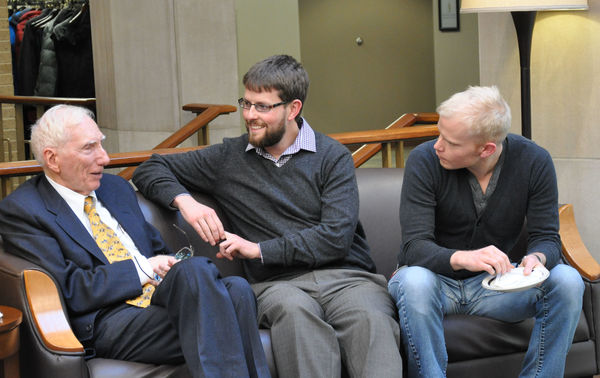
Our long list of graduate student presentations and graduate student publications exemplify the quality of our program.
We offer a wide array of graduate course offerings , including many courses that incorporate the sociology of religion.
Here you will find answers to frequently asked questions about the graduate studies program, including information about the graduate comprehensive exam in the sociology of religion .
DEPARTMENT OF RELIGIOUS STUDIES
The Department of Religious Studies at Northwestern offers a small, highly flexible, interdisciplinary Ph.D. program that takes full advantage of faculty strength within our department as well as ancillary fields of the humanities and social sciences. In the spirit of the inherently interdisciplinary character of religious studies, we train scholars both in the history of theory and method in religious studies and in important complementary approaches like ethnography, textual study, philosophy, historiography, and art history. Our exceptional faculty’s wide training and diverse interests provide a rich foundation for future scholarship and teaching in a field that demands deeply trained specialists who are nonetheless avidly engaged in broad methodological and theoretical conversations of interest to the whole discipline.
Graduate students take at least two years of course work, including seminars, tutorials, and independent studies. All students take a two-quarter sequence in theories and methods in the study of religion and at least one course in comparative study of religion. Examples include "The Study of Religion as Vocation," "Classical Theories of Religion," "Sin, Salvation, and Racialization," and "Secularities: Thinking with, through, and against 'Religion'."
In addition, all students expand their circles of mentors and colleagues by taking up to half their course work in other departments. Many students join an entering cohort in an affiliated department by participating in its standard first-year program, e.g. writing a first-year paper in History, taking the Introduction to Graduate Study in English, or taking the introductory seminars in cultural anthropology and anthropological research. But not all external coursework need be done in the same department. Rather, classes are chosen flexibly in consultation with the student's adviser in order to take full advantage of faculty resources in the field. To guarantee appropriate cross training, each examining committee and dissertation committee includes at least one faculty member from outside the department.
The third year is devoted to written and oral qualifying exams, to the preparation of a prospectus, and to additional course work if desired; the fourth and fifth years are dedicated to dissertation research and writing. Most students complete the degree within five years, although dissertations that require extensive fieldwork or archival research might take longer; additional competitive funding is available for longer projects.

- Remember me Not recommended on shared computers
Forgot your password?
- Sociology Forum
Sociology of Religion
By username4321 March 17, 2009 in Sociology Forum
Recommended Posts

username4321
i am heading into a MTS degree in the fall. my focus/interests are in ethics, society, and the sociology of religion. when looking at phd programs i am curious if the MTS can lead natually into a phd in sociology with a focus on religion (which i have seen at schools like emory, duke, texas, ucsb, vandy, etc..)? and what steps would be best to take while a MTS to best prepare me and my resume for that path? any ideas ladies and gents? i would appreciate it..

It probably depends on the school. I would assume though, that schools that focus on soc. of religion might accept you to their PhD program but also require you to take at least some of their required MA level courses. (Stats/Methods/Theory). If this is so, it might take you a year longer than other incoming PhD students.
This is all just speculation though. In most cases, schools don't decide which credits they're going to take until you've already accepted their offer.
mystic rose
I second that it probably depends on the program. Also, I think it depends on what you want to study. If you're interested in quantitative research, then it would definitely be a good idea to take a class in basic statistics. If you're interested in qualitative research, then you should take a qualitative methods class. That way you hopefully won't have to take these basic courses as a PhD student (I say hopefully because schools can be picky about what classes from other programs they will count).
In my case, I have a BA in religion (Christian ethics focus) and political science and a MA in religion (Christian ethics focus). I applied to 3 religion PhD programs for sociology of religion, and one sociology PhD program with an emphasis in sociology of religion. My application cycle has gone pretty well, and it didn't seem to matter to the schools that I don't have a sociology background. However, at the recruitment weekends I've attended, the professors I talked to did mention that it was good that I had experience in the social sciences as an undergrad political science major. So, I'm inclined to think that having a few courses in stats/theory/methods helps.

Sociology programs generally welcome non-sociology majors with open-arms. Someone even told me before they almost prefer people with majors that are considered more difficult (probably with some soc. coursework, though), since a lot of Universities requirements for a Sociology major aren't very difficult. [Please note before you attack me for claiming that "sociology is simplistic, bullshit, not a real discipline etc." (which I didn't say, anyway) that sociology was one of my majors AND that the ASA on their website encourages departments to make the requirement for a sociology major more rigorous, AND provides a list of tips to encourage smarter students to major in sociology.]
Sub-topic: Perhaps one of you folks can explain to me why someone would choose Sociology of Religion over, say, Religious Studies or even History of Religion. Is there a fundamental difference in outlook (say, is soc. more of a critical perspective)? Would Religious Studies be more based on interpretation of scripture, and thus have more difficult language requirements? Is it a relative-comeptitiveness issue? I asked my roommate this last year (who was a R.S. major) and he really couldn't provide me with a satisfactory explanation (though he abhorred Sociology in general).
I'm not extremely familiar with religious studies research, but I am aware of people who were trained as sociologists of religion and are now in religious studies departments. There are also psychologists of religion, theologists, anthropologists, etc. Religious studies seems fairly broad, whereas sociologists tend to study how individuals/society influence religion, and how religion influences individuals and society. For the most part, sociologists of religion do not delve into scripture or religious ideas. I would think that our methods of research are pretty different, as well.
i second that. religious studies is more historical and biblically focused where sociology of religion is more practical study of religion and its effects on society. you can also pair it with studying economics, non-profits, etc..
thanks for the answers guys. i did my undergrad in economics at university of chicago, which was very quant based, so hopefully that background will work well with a MTS when heading into a soc program. any advice would be great as far as things to do while getting my MTS (taking a few grad courses in the soc department, finding a prof to work with, etc..) or things you have learned in the application process that you wish you knew two years ago or so..
I think it depends on the focus of the specific religious studies department. Religious studies departments can encompass classes on scripture, systematic theology, philosophy of religion, religious ethics, religious history, religious literature, comparative religions, sociology of religion, etc. Some lean more towards a historical and biblical approach, while others are more focused on religion and its influence on culture.
I guess i am curous as how to shape my electives and the couple courses i can take outside of the religion department? as well as if i should focus my thesis on a soc topic (and what they like to see)? and the best way to spend my summer off in between years?
mystic rose, you mentioned applying to 3 religion and one soc of religion, which ones?
- 3 months later...
lastdazeman
I would like to resurrect this discussion. From where I'm sitting it seems to have died in March.
I have been using Google to search for a graduate program where I can earn a doctorate in the Sociology of Religion. I've not been in school full time in 30 years. Back then I earned a BA, double majoring in Sociology and Anthropology. I had a fair background in math so I aced social statistics. I went on to get a BS in computer science.
I have a boatload of questions on more general topics but I want to focus here and now on potential schools. In what I have found so far, Baylor has the most courses that focus on the Sociology of Religion; Purdue is a distant second. The problem is that our daughter has MS and for her to visit us in Waco, Texas in the summer presents a problem (not to mention my spouse is reluctant to endure the heat there either). MS patients need to stay cool.
Reading this thread has also caused me to be more open to the idea of Religious Studies. I do like the idea of inter-disciplinary approaches but there has got to be a down-side.
In the years since college I have worked in the computer industry while pursuing my true interests by church-hopping, reading, writing, surfing the internet, and taking a sabbatical to teach and coordinate religious education.
Long term I would like to turn my attention to research in the relationships between the many faith groups and the other institutions of the societies in which they exist. In my spare time I have followed Barna's studies, the Pew Forum, religion-online, religion news writers, and formed my own company to create on-line surveys. My current interest and spare-time work has been around the issue that faith groups perceive themselves unable to effectively quantify and measure spiritual maturity.
I feel I need a PhD to accomplish what I believe I have been called to do because I have found that in life one can be extremely wise, discerning and knowledgeable but people are much more likely to take one's contributions seriously if one has the credentials. Beyond this I also find that the more scholarship one is exposed to, the more probable that the contributions will be creative and effective.
Thank you for reading my post.

What are you hoping to do after you complete the Ph.D.? I'm guessing that you're not terribly concerned about the tenure track since it sounds like you're already financially secure. That gives you the freedom to expand the scope of your search a bit beyond the top-ranking departments and consider geography. I have found sociology to be very meritocratic relative to the other fields I'm familiar with (namely law and poli sci) - if you're able to dedicate yourself to producing and publishing quality work, I think you'll be taken seriously wherever you study. Why not start taking courses at the nearest school with social science grad courses as a non-matriculated student this fall so you can begin the process of accumulating credits and gaining the letters you'll need this application season? Most grad courses only meet 1-2 days a week, so don't be afraid to look at universities a few hours away from you. That would give you connections to faculty that might be able to consult with you on your applications, even if they're not experts on religion themselves.
There are plenty of flagship state schools doing good work that would love to have you - especially if you could forgo fellowship support in these lean times. I would also suggest you look at universities with good interdisciplinary research groups in religion (they might be formal programs or they might be informal cliques... you might have to ask around a bit to locate them. A few that I can name are Duke, U. Washington, Notre Dame, maybe Berkeley and Princeton - I'm no expert on religion, though.)
If I were you I'd suggest trying to attend the ASA meetings in San Francisco in August. Travel costs are low enough that you could still feasibly plan a trip and it would give you the chance to try to meet some of the people you might want to work with in person - this could be particularly helpful for you if you don't have good academic LOR's. Finally, when you look at programs, I wouldn't be particularly concerned with the number of courses they offer - what is more important is the number of faculty, both in their soc department and across campus, that you could see yourself working with. That said, you really only need one strong mentor (as long as he/she doesn't move or die while you're in school) to be successful in grad school.
Hope this helps!
Thanks. That is really helpful. Your comments expand on some I've got from Scott T. at the Hartford Inst.
I suppose I should slow down on the shopping and get serious about taking the GRE.
Sorry it took so long to acknowledge your post. I thought I would get notified via email about responses but I was not. I better see what my profile is set to.
Thanks so much!
- 2 weeks later...
If I were you I'd suggest trying to attend the ASA meetings in San Francisco in August. Travel costs are low enough that you could still feasibly plan a trip and it would give you the chance to try to meet some of the people you might want to work with in person - this could be particularly helpful for you if you don't have good academic LOR's.
My daughter (senior in high school) wants to check out a school so we will both be going. My aunt and uncle and a cousin or two are in the neighborhood of SF and she can hang out with them while I'm at the conference.
It seems I can just show up and pay my money (hopefully I can get by with the $130).
I'm thinking about emailing folks to see if they will be there. Do you think that's a good idea?
Lev Bronstein
I'd check the program online first. You can search by name,
- 8 months later...
What are you hoping to do after you complete the Ph.D.? I'm guessing that you're not terribly concerned about the tenure track since it sounds like you're already financially secure. That gives you the freedom to expand the scope of your search a bit beyond the top-ranking departments and consider geography. I have found sociology to be very meritocratic relative to the other fields I'm familiar with (namely law and poli sci) - if you're able to dedicate yourself to producing and publishing quality work, I think you'll be taken seriously wherever you study. Why not start taking courses at the nearest school with social science grad courses as a non-matriculated student this fall so you can begin the process of accumulating credits and gaining the letters you'll need this application season? Most grad courses only meet 1-2 days a week, so don't be afraid to look at universities a few hours away from you. That would give you connections to faculty that might be able to consult with you on your applications, even if they're not experts on religion themselves. There are plenty of flagship state schools doing good work that would love to have you - especially if you could forgo fellowship support in these lean times. I would also suggest you look at universities with good interdisciplinary research groups in religion (they might be formal programs or they might be informal cliques... you might have to ask around a bit to locate them. A few that I can name are Duke, U. Washington, Notre Dame, maybe Berkeley and Princeton - I'm no expert on religion, though.) If I were you I'd suggest trying to attend the ASA meetings in San Francisco in August. Travel costs are low enough that you could still feasibly plan a trip and it would give you the chance to try to meet some of the people you might want to work with in person - this could be particularly helpful for you if you don't have good academic LOR's. Finally, when you look at programs, I wouldn't be particularly concerned with the number of courses they offer - what is more important is the number of faculty, both in their soc department and across campus, that you could see yourself working with. That said, you really only need one strong mentor (as long as he/she doesn't move or die while you're in school) to be successful in grad school. Hope this helps!
I need to thank you again for your advice. I went to the ASA Annual Meeting in San Francisco. I also took a graduate level sociology course. I had to pay out of pocket a few grand but the professor wrote over a dozen letters of recommendation for me and helped me put together a good writing sample. Bottom line is that I have been accepted to one of the schools, although I was not accepted to the school where I took the course. I will be on my way to a Ph.D. starting in Fall 2010. Thank you again for the great advice.
Create an account or sign in to comment
You need to be a member in order to leave a comment
Create an account
Sign up for a new account in our community. It's easy!
Already have an account? Sign in here.
- Existing user? Sign In
- Online Users
- All Activity
- My Activity Streams
- Unread Content
- Content I Started
- Results Search
- Post Results
- Leaderboard
- Create New...
Important Information
This website uses cookies to ensure you get the best experience on our website. See our Privacy Policy and Terms of Use
What are you looking for?
Suggested searches.
- Majors & Minors
Related Articles
In memoriam: richard a. easterlin, 98, pioneering economist who explored happiness and demographics, usc joins ryght research network to streamline clinical trials with ai.

IMAGES